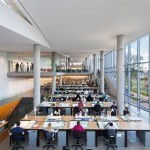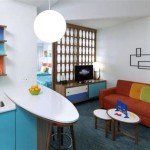Interior Designers in Boise, Idaho: Shaping Spaces and Enhancing Lives
Boise, Idaho, a city celebrated for its outdoor recreation and vibrant cultural scene, also boasts a thriving interior design community. These professionals play a crucial role in shaping the aesthetic and functional aspects of residential and commercial spaces, contributing to the overall quality of life for residents and the success of local businesses. Interior designers in Boise offer a wide range of services, from initial concept development to project management and final installation, transforming mere buildings into personalized and inspiring environments.
The demand for interior design services in Boise has grown steadily in recent years, fueled by factors such as a booming real estate market, an increasing awareness of the importance of well-designed spaces, and the desire for homes and workplaces that reflect individual styles and needs. As a result, a diverse group of talented designers has emerged, each bringing unique skills, expertise, and creative vision to the table.
Navigating the landscape of interior design professionals can be challenging. Understanding the scope of services offered, the different specializations within the field, and the qualifications to look for is essential for choosing the right designer for a specific project. This article aims to provide a comprehensive overview of the interior design scene in Boise, Idaho, highlighting key considerations for those seeking to enhance their living or working spaces.
Understanding the Scope of Interior Design Services
Interior design encompasses a broad range of disciplines, extending beyond mere aesthetic considerations. Interior designers are trained to address both the functional and visual aspects of a space, taking into account factors such as space planning, lighting, acoustics, ergonomics, and building codes. The specific services offered by an interior designer can vary depending on their expertise and specialization, but generally include the following:
Space Planning: This involves analyzing the existing space and developing a layout that optimizes functionality and flow. Designers consider factors such as traffic patterns, furniture placement, and the intended use of each area to create a cohesive and efficient design.
Conceptual Design: This phase focuses on developing the overall aesthetic vision for the space, including color palettes, material selections, and furniture styles. Designers work closely with clients to understand their preferences and develop a design concept that reflects their personality and needs.
Material Selection: Interior designers are knowledgeable about a wide range of materials, including flooring, wall coverings, fabrics, and fixtures. They can assist clients in selecting materials that are not only aesthetically pleasing but also durable, sustainable, and appropriate for the intended use of the space. They also consider budgetary constraints when suggesting materials.
Lighting Design: Lighting plays a crucial role in creating the desired ambiance and functionality of a space. Designers consider factors such as natural light sources, artificial lighting options, and lighting controls to develop a lighting plan that meets the specific needs of the project.
Furniture Selection and Procurement: Designers assist clients in selecting furniture pieces that complement the overall design aesthetic and meet their functional needs. They often have access to trade-only resources and can help clients source high-quality furniture at competitive prices.
Project Management: Many interior designers offer project management services, overseeing the entire design and construction process from start to finish. This includes coordinating with contractors, managing budgets, and ensuring that the project stays on schedule.
Accessibility Considerations: Increasingly, interior designers are incorporating accessibility principles into their designs, making spaces more usable and comfortable for people of all abilities. This may involve widening doorways, installing grab bars, and selecting flooring materials that are easy to navigate.
Sustainable Design Practices: Environmental consciousness is becoming more prevalent in the design industry. Designers often incorporate sustainable materials and practices into their projects, helping to reduce environmental impact and create healthier living spaces.
Specializations within Interior Design
The field of interior design is diverse, with many designers choosing to specialize in a particular area. This specialization allows them to develop in-depth knowledge and expertise in a specific type of project or design style. Common specializations include:
Residential Design: Residential designers focus on creating comfortable, functional, and aesthetically pleasing living spaces for homeowners. They may work on a variety of projects, from single-room renovations to whole-house remodels.
Commercial Design: Commercial designers specialize in creating functional and attractive spaces for businesses, including offices, retail stores, restaurants, and hotels. They consider factors such as brand identity, employee productivity, and customer experience when developing their designs.
Kitchen and Bath Design: Kitchen and bath designers focus specifically on the design and renovation of kitchens and bathrooms. They are knowledgeable about plumbing, electrical, and construction codes, as well as the latest trends in kitchen and bath design.
Healthcare Design: Healthcare designers specialize in creating healing and supportive environments for patients, staff, and visitors in hospitals, clinics, and other healthcare facilities. They consider factors such as infection control, patient safety, and accessibility when developing their designs.
Hospitality Design: Hospitality designers focus on creating welcoming and memorable experiences for guests in hotels, resorts, and restaurants. They consider factors such as ambiance, comfort, and functionality when developing their designs.
Sustainable Design: Sustainable designers specialize in incorporating environmentally friendly materials and practices into their projects, minimizing environmental impact and creating healthier spaces. They may be certified by organizations such as the U.S. Green Building Council (USGBC).
Universal Design: Universal design specialists focus on creating spaces that are usable and accessible to people of all ages and abilities. They consider factors such as mobility, vision, and hearing when developing their designs.
When selecting an interior designer, it is important to consider their specialization and ensure that it aligns with the specific needs of the project. A residential designer may not be the best choice for a commercial project, and vice versa.
Qualifications and Considerations When Choosing a Designer
Selecting the right interior designer is a crucial step in ensuring the success of any design project. Several factors should be considered when making this decision, including the designer's qualifications, experience, design style, and communication skills.
Education and Certification: Look for designers with a formal education in interior design from an accredited institution. A degree in interior design provides a solid foundation in design principles, construction techniques, and building codes. Many designers also pursue professional certifications, such as those offered by the National Council for Interior Design Qualification (NCIDQ). NCIDQ certification demonstrates that a designer has met rigorous standards of education, experience, and examination.
Experience: Consider the designer's experience and the types of projects they have worked on in the past. Review their portfolio to get a sense of their design style and the quality of their work. Ask for references from previous clients to learn about their experience working with the designer.
Design Style: Every designer has a unique design style, which is reflected in their portfolio. It is important to choose a designer whose style resonates with your personal preferences and the desired aesthetic for the space. Some designers specialize in specific styles, such as modern, traditional, or eclectic.
Communication Skills: Effective communication is essential for a successful design project. Choose a designer who is a good listener, asks thoughtful questions, and clearly communicates their ideas and recommendations. They should be able to explain complex design concepts in a way that is easy to understand.
Budget: Discuss your budget with the designer upfront and ensure that they are comfortable working within your financial constraints. Ask for a detailed breakdown of their fees and expenses, and be sure to understand the payment schedule. Interior designers typically charge by the hour, by the project, or as a percentage of the total project cost.
Contract: Before beginning any work, be sure to sign a written contract with the designer. The contract should clearly outline the scope of work, timeline, payment terms, and other important details. Review the contract carefully and ask any questions before signing.
Insurance and Licensing: Verify that the designer carries adequate liability insurance and is properly licensed to practice in Boise, Idaho. This protects you in case of accidents or negligent acts during the design or construction process.
References and Reviews: Check online reviews and ask for references from past clients. Speaking with previous clients can provide valuable insights into the designer's professionalism, communication skills, and overall quality of work.
Compatibility: Ultimately, the most important factor in choosing an interior designer is compatibility. You should feel comfortable working with the designer and confident in their ability to understand your needs and translate them into a beautiful and functional space. Schedule consultations with several designers before making a final decision.
By carefully considering these factors, individuals in Boise, Idaho, can confidently select an interior designer who will help them create spaces that enhance their lives and reflect their unique styles and needs. The right designer can transform a house into a home, an office into a productive workspace, and an ordinary space into an extraordinary environment.
Top 10 Boise Interior Designers Near Me Decorilla
Top 10 Boise Interior Designers Near Me Decorilla
Kirsten Brockner Interiors Reflect Who You Are Full Service Interior Design Firm Serving The Greater Boise Meridian Idaho Area
Lauren Kelly Design Interior Boise Idaho
Top 10 Boise Interior Designers Near Me Decorilla
The 10 Best Interior Designers In Boise Id With Free Estimates
Interior Designers Of Idaho
Boise Interior Designers Archives Ennis Fine Furniture
Interior Designers In Boise Top 30 Rtf Rethinking The Future
Top 10 Best Interior Design In Boise Id March 2024 Yelp








